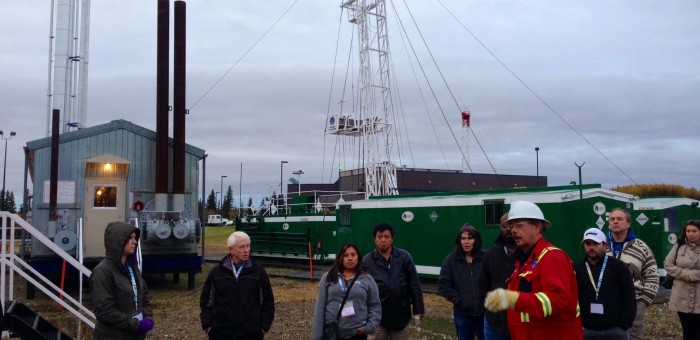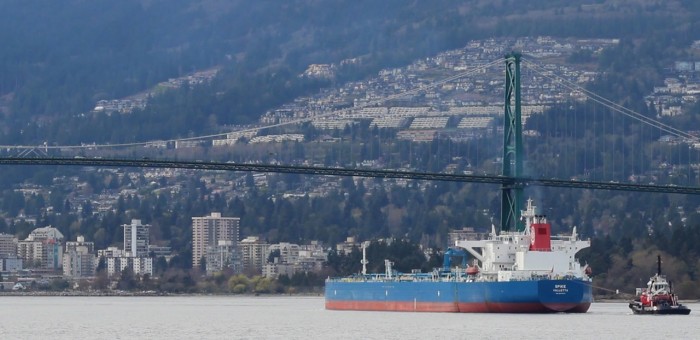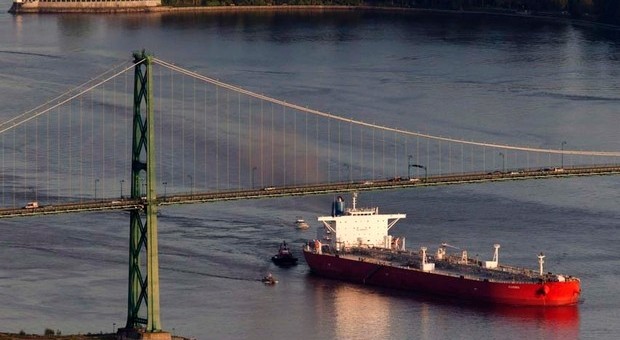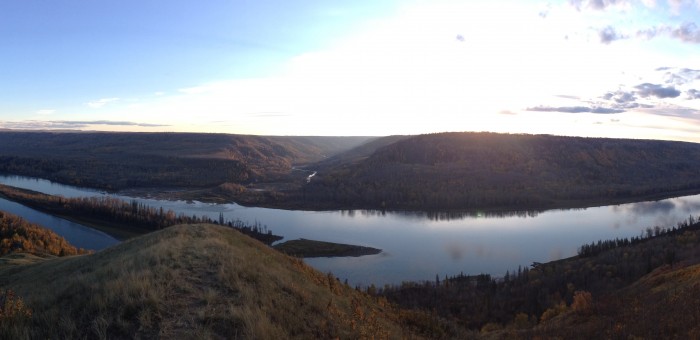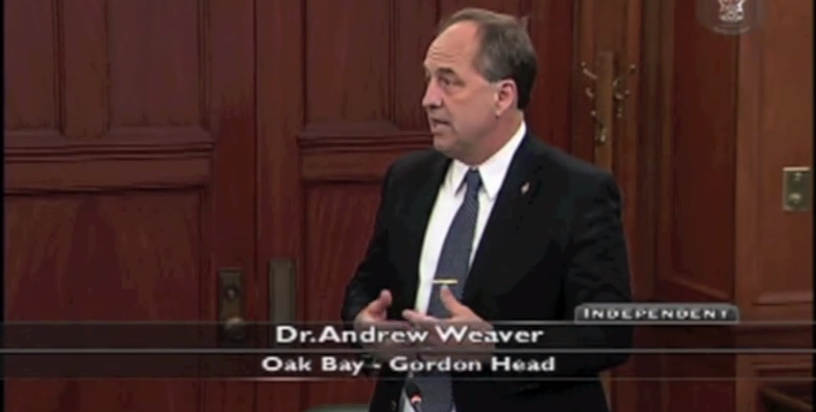Energy and Mines
Probing the Economics of the BC LNG Hype
Today I was up in Question Period and I took the opportunity to quiz the government about the effects of the recently announced Russia-China natural gas deal on its vision for economic prosperity from a generational LNG opportunity. The government clearly remains confident that their LNG dream will become a reality. It’s evident that there still is no backup plan in case it doesn’t come to fruition.
Below I reproduce the question and answer session from Hansard. Unfortunately, I didn’t get an answer to my supplemental question.
A. Weaver: The government has promised British Columbians a generational opportunity of prosperity through development of an LNG industry.
We’ve been promised a $100 billion prosperity fund, more than 100,000 jobs, a trillion-dollar increase in GDP. We’ve been promised a debt-free B.C., the elimination of the PST, thriving schools and hospitals.
[Applause.]
Hon. Speaker, they should wait for the rest of the question.
Russia, with about 20 times the natural gas reserves as all of Canada combined, just signed a $400 billion 30-year deal with China to provide them with natural gas at a cost of around $10 per million Btu. It’s projected to cost about $6 to $8 per million Btu to get gas to Asia. Natural gas is currently trading at about $4.50 per million Btu in North America. This means that B.C. natural gas is simply not competitive with the new 30-year price target set in Asia.
My question to the Minister of Natural Gas Development is this. What’s the backup plan for economic prosperity in B.C. if its LNG goal is not realized?
Hon. R. Coleman: First of all, I want to thank the member for his question, the first question on LNG in four months in this Legislative Assembly during question period. I want to tell the member this.
Last week British Columbia hosted the most successful government-sponsored conference in the history of the province on liquefied natural gas — or anything, for that matter — in Vancouver. During that conference a tentative agreement between China and Russia was actually announced, which might be able to supply maybe 10 percent of the growth in the Chinese market in natural gas if it actually ever gets built. The distance of the pipeline and the time indicates it will take decades to do.
I sat down with the CEOs and presidents and senior people from all the major companies that are in British Columbia today with regards to liquefied natural gas. Not one of them…. They all told me that this is not a game changer for them. They are still confident in British Columbia. They know we can compete with them globally.
We know the gas will not arrive at the cities, particularly on the coast, in China at the price that was quoted in the press release. It is just not possible. We actually know our prices will be competitive with China, and they tell us they’re still coming and they’re still investing in British Columbia.
Madame Speaker: Oak Bay–Gordon Head on a supplemental.
A. Weaver: Japan is in the process of turning back on its nuclear plants. The Queensland gas fields in Australia are coming on line. Russia is expanding its LNG capacity through Vladivostok. The U.S. is ready to go with LNG exports. Qatar has more than ten times the reserves of Canada. China has more than three times the shale gas reserves of Canada. There is no shortage of natural gas out there to meet world demand.
The reality is that not a single company has made a final investment decision in the British Columbia LNG industry. Yet we have put all our eggs in one basket, and in the words of Preston Manning at the last B.C. Energy Conference in Fort St. John, we’re counting our chickens before the rooster has even entered the hen house.
My question to the Minister of Energy and Mines is this. Will he commit to working towards positioning B.C. as a global leader in the clean tech sector, which will serve as the foundation of tomorrow’s economy, and if so, how?
Hon. R. Coleman: First of all, we do know where the supplies and the reserves are of natural gas in the world. We do know that we can compete on that world market. We have been told that specifically by major companies like Shell and Chevron and Exxon Mobil and BG and Petronas and others. They have actually spent in this province to date well in excess of probably $8 billion or $9 billion in getting towards working on their final investment decision, designing plants and what have you.
Interjections.
Hon. R. Coleman: I know the members opposite want to heckle, because they don’t want to admit that they don’t actually support a vision for the future of British Columbia. They don’t support liquefied natural gas. They don’t support the opportunity. But the reality is this.
Interjections.
Madame Speaker: Members.
Hon. R. Coleman: These people have sat down with us. We’ve worked out the financial parameters. We know that we’re competitive globally. We know we’re going to get a final investment decision, and we know we will be successful on this file.
Interjections.
Hon. R. Coleman: I know the members opposite are heckling because they are so nervous about the fact that they are opposed to liquefied natural gas in B.C. But I can tell you this, Member opposite. I’ll tell you this very simply. You doubted my optimism going into the election last year; don’t doubt my optimism in going onto this file.
The bottom line is this. It’s our coast, and we deserve better.
The National Energy Board review process for Kinder Morgan’s Trans Mountain pipeline is now well-underway.
If the project is approved, we would see an increase from 60 to more than 400 heavy oil tankers leaving Vancouver harbour each year. Those tankers would then pass around the tip of southern Vancouver Island—an area identified by the federal Tanker Safety Expert Panel as being one of the most high risk areas in Canada for an oil spill.
The thought of this enormous increase in tanker traffic alarms me, and I know I’m not alone. With more oil tankers comes more risk of an oil spill—one that could destroy our pristine coastline and devastate our local communities. The whole idea undermines Vancouver’s award-winning efforts to become the world’s greenest city by 2020.
That’s why I applied to be a full participant in the Kinder Morgan hearings. My constituents, and British Columbians across our province, will be affected by this pipeline and they deserve a voice in the process.
Last week I joined dozens of other participants in submitting questions to Kinder Morgan on their application. With a 15,000 page application to review, and only one month to submit questions, I chose to start by analyzing Kinder Morgan’s evidence around oil spills: How likely are they? What impact will they have? And how effectively can we actually clean them up? I also asked about whether my constituents, and others in the coastal communities, were properly consulted, given the impact this project could have on their health and livelihoods.
If the number of questions a participant submits is any indicator, I had nearly 500 questions on oil spills and consultation alone. Collectively, participants submitted thousands of questions on these and other topics as we try to better understand what this project will really mean for British Columbians.
Here are just a few examples of the areas I asked about:
1) Federal studies clearly show that, unlike most other crude oils, the diluted bitumen Kinder Morgan will be transporting through its pipeline is so heavy that when it mixes with suspended particles in the ocean, it sinks. If there is one thing we have plenty of in our coastal waters, it is suspended sediments. Unfortunately, Kinder Morgan’s oil spill response is based entirely on the faulty assumption that the spilled oil would float. How are they going to respond when it actually sinks?
2) When assessing the impact of an oil spill and their ability to clean it up, Kinder Morgan based their projections on near-perfect conditions, including: 20 hours of daylight, pristine weather with only minimal waves, the availability of all staff and equipment to respond, and of course, floating oil. They also assumed that they would have twice the response capacity available to them as currently exists. Despite these ideal circumstances, they only predicted that 45% of the oil would be recovered. Even then, they acknowledge that their model isn’t consistent with historical averages (generally only 5-15% of spilled oil is ever recovered). I asked Kinder Morgan to redo their model analysis to offer realistic projections, based on credible assumptions, so that we can know what to really expect.
3) A typical heavy oil tanker will carry more than 100,000 tonnes of oil. Yet in their analyses, Kinder Morgan assumed a worst-case scenario that only 16,500 tonnes would ever “credibly” spill at a time. That may be true according to Kinder Morgan’s calculations, but credible risk analyses consider the full range of scenarios, including one where the ship sinks and all of its oil is released. How can we know the full risk that comes with these tankers, if the worst-case scenario is excluded from consideration?
Ultimately, in applying to build their pipeline, Kinder Morgan is applying for a social license from British Columbians. Earning that social license begins with providing credible evidence that can stand up to thorough cross-examination.
Kinder Morgan has already advocated excluding oral cross-examination from the hearing process. Those who followed the Northern Gateway hearings know just how significant this change is.
What the above points suggest is that Kinder Morgan’s submitted evidence is far from complete. After reading countless pages of documents it’s pretty clear to me that neither Kinder Morgan, the scientific community, nor the federal or provincial governments have even a cursory idea of what would happen in the case of a catastrophic diluted bitumen spill in our coastal waters.
The bottom line is this. It’s our coast, and we deserve better.
Details Needed on Spill Response, Scientific Data and Consultation from Kinder Morgan
Media Statement: May 12, 2014
Details Needed on Spill Response, Scientific Data and Consultation from Kinder Morgan
For Immediate Release
Victoria B.C. – The deadline for intervenors to submit initial questions and information requests to the National Energy Board on the proposed Kinder Morgan – Trans Mountain pipeline project passed at noon (pacific time) today. The office of Andrew Weaver has submitted close to 500 questions for this phase of the hearing process, concentrating on the science surrounding the risk and likely impact of an oil spill, Kinder Morgan’s ability to respond and cleanup a spill, and the consultation that was done with affected island coastal communities.
Andrew Weaver is participating as an intervenor in the N.E.B. as the elected representative of the riding of Oak Bay – Gordon Head, a community that will be directly affected should a spill occur on the oil tanker route.
“I am very concerned about the evidence used to justify Kinder Morgan’s assertion that it can deal with a heavy oil spill. As we saw with the Northern Gateway hearings there simply has not been adequate research on how heavy oil behaves in a marine environment, or if it is even possible to clean it up” said Andrew Weaver “We have submitted detailed questions to the company and I trust they will respond with comprehensive answers”
The N.E.B. hearings on the Kinder Morgan pipeline expansion continue into 2015 with a final report anticipated next summer. Unlike the Northern Gateway hearings no oral cross examination of the company or experts is provided, only written questions and responses are allowed.
To see the questions submitted to the National Energy Board click here:
Media Contact
Mat Wright – Press Secretary, Andrew Weaver MLA
mat.wright@leg.bc.ca
1 250 216 3382
Site C Joint Review Report Shows Major Obstacles for Approval
Media Statement: May 8, 2014
Site C Joint Review Report Shows Major Obstacles for Approval
For Immediate Release
Victoria BC – The Joint Review Panel’s report on the proposed Peace River Site C dam published today identifies major obstacles in the path for approval. While the report does not emphatically say yes or no to the project, certain sections highlight the permanent damage to the environment, farmland and wildlife the project would have. These include effects on First Nations rights, and lack of exploration of similar-cost renewable energy alternatives.
Andrew Weaver has pointed out that Site C is the wrong project at the wrong time when alternative energy, including geothermal, wind, tidal and small-scale hydro sources, coupled with existing dams would provide substantially improved firm energy and capacity. This approach would be less damaging to the environment and, distributed around B.C. It would provide future power requirements with better cost and employment outcomes. Geo-thermal, wind, tidal and smaller hydro projects would yield substantial economic benefit to communities, especially First Nations.
“The government should note the major obstacles outlined in the Joint Review Panel report on the Site C dam. The consequences on First Nations traditional fishing and hunting grounds are a barrier that will strain already tense relations, should the project proceed” Said Andrew Weaver – “The entire policy around energy development in British Columbia needs review as the report clearly stated Geo-thermal, and other renewable sources, should be explored”
The Panel concluded:
1: On the environment and wildlife:
- “the Project would cause significant adverse effects on fish and fish habitat”
- “significant adverse effects on wetlands, in particular valley bottom wetlands”
- “the Project would likely cause significant adverse effects to migratory birds relying on valley bottom habitat during their life cycle and these losses would be permanent and cannot be mitigated”
2: On renewables:
“The scale of the Project means that, if built on BC Hydro’s timetable, substantial financial losses would accrue for several years, accentuating the intergenerational pay-now, benefit-later effect. Energy conservation and end-user efficiencies have not been pressed as hard as possible in BC Hydro’s analyses. There are alternative sources of power available at similar or somewhat higher costs, notably geothermal power. These sources, being individually smaller than Site C, would allow supply to better follow demand, obviating most of the early-year losses of Site C. Beyond that, the policy constraints that the B.C. government has imposed on BC Hydro have made some other alternatives unavailable.”
3: Regarding First Nations:
The panel:
- “concludes that the Project would likely cause a significant adverse effect on fishing opportunities and practices for the First Nations represented by Treaty 8 Tribal Association, Saulteau First Nations, and Blueberry River First Nations, and that these effects cannot be mitigated.” –
- “ concludes that the Project would likely cause a significant adverse effect on hunting and non-tenured trapping for the First Nations represented by Treaty 8 Tribal Association and Saulteau First Nations, and that these effects cannot be mitigated.3 –
- “ the Project would likely cause a significant adverse effect on other traditional uses of the land for the First Nations represented by Treaty 8 Tribal Association,and that some of these effects cannot be mitigated.” And
- “concludesthat the Project would likely cause significant adverse cumulative effects on current use of lands and resources for traditional purposes.”
4: For background information on Andrew Weaver’s position with respect to the value of distributed renewable energy production instead of Site C, please see:
http://www.andrewjweaver.ca/2013/10/17/wind-power-site-dam-cents/
For interview requests:
Media Contact
Mat Wright – Press Secretary, Andrew Weaver MLA
mat.wright@leg.bc.ca
1 250 216 3382
Question Period – Andrew Weaver calls on government to protect credibility of its 5 conditions for Heavy Oil Pipelines
Media Statement, May 8th 2014
Andrew Weaver calls on government to protect credibility of its 5 conditions for Heavy Oil Pipelines
For immediate release
Victoria, B.C. – Andrew Weaver, MLA for Oak Bay – Gordon Head and Deputy Leader of the B.C. Green Party, calls on the B.C. government to explain its silence on the National Energy Board’s Kinder Morgan – Trans Mountain pipeline hearing process, as local governments and other intervenors raise strong concerns about a defective process.
The government missed an important opportunity to weigh in on a key motion, that called on the National Energy Board to introduce oral cross-examination into the hearing process.
Oral cross-examination played a critical role in the Joint Review Panel hearings on the proposed Northern Gateway Pipeline. The cross-examination period lasted more than 90 days with the Province itself requesting over 8 hours of that time. It was essential in assessing the extent to which the project met the B.C. Government’s 5 conditions, and helped uncover serious gaps in Enbridge’s evidence ultimately leading the province to conclude that it could not support the project at that time.
However, oral cross-examination has been replaced in the current Trans Mountain hearing process, with only two opportunities to submit written questions. First Nations groups, cities including Victoria, Vancouver and Burnaby, and many other intervenors have raised significant concerns about the ability to adequately assess Trans Mountain’s evidence. This concern is amplified by the short timeline that gives intervenors little more than one month to read the 15,000 page application and submit their first round of questions.
This precedent-setting change comes along with a federally legislated timeline that shortens the length of the Kinder Morgan hearing process and all future hearings. However, the need to ensure fairness must remain paramount and at least one intervenor–Elizabeth May, Member of Parliament for Saanich-Gulf Islands and Leader of the Green Party of Canada–is considering legal action over the removal of oral cross-examination.
“The final argument that the government prepared at the conclusion of the Joint Review Panel hearings on the proposed Northern Gateway Pipeline was a substantial and articulate document that relied heavily on oral cross-examination to make the case for why the Province was unable to support that proposal at this time. The fact that the government has remained silent on the absence of oral cross-examination in the Trans Mountain hearings, raises significant concerns, and is putting the credibility of its 5 conditions at risk.” said Andrew Weaver.
Background Documents:
Backgrounder 1 – Comparison of NGP and TMP
Media Contact:
Mat Wright – Press Secretary Andrew Weaver MLA
mat.wright@leg.bc.ca
1-250-216-3382
The Hansard transcript of the Question Period interaction is reproduced below.
A. Weaver: On April 14 Robyn Allan, one of 400 interveners in the Kinder Morgan hearings, submitted a motion asking the National Energy Board to introduce oral cross-examination into the process.
I joined many other interveners in writing a letter of support for Robyn Allan’s motion, as I felt this was the best way to formally express the importance of such cross-examination.
Madame Speaker, the government had ten days to submit their own letter of support, but they didn’t. A letter from the province would have had a profound influence on the NEB. Yesterday the NEB ruled on Robyn Allan’s motion and a similar motion tabled by MP Elizabeth May, dismissing their requests for oral cross-examination.
My question is to the Minister of Environment: given the government’s own comments that oral cross-examination of Enbridge was an essential part of determining whether or not the project met their five conditions, why did the government not take this opportunity to stand up for British Columbians and formally request oral cross-examination in the NEB hearing process?
Hon. M. Polak: I thank the member for his question and thank you for alerting me to his interest in the matter.
With respect to the National Energy Board hearings, I know the member is aware that they are a body that designs its own standard for how those hearings occur that we as a province do not influence.
Nevertheless, to the member’s question, the oral cross-examination, direct cross-examination, is not the only way in which one can put forward a case. In fact, there are still opportunities for participants to ask questions of Kinder Morgan and present their own information and perspectives to the panel. Interveners have the option to file detailed written information requests that Kinder Morgan is obliged to respond to — and in fact, in writing.
Also, interveners have the ability to address the review panel in person and to make their arguments and file written evidence.
With that knowledge, Madame Speaker, we determined that the opportunities were still sufficient for us to provide as strong an argument for our five conditions around Kinder Morgan as we did in the northern gateway hearings.
A. Weaver: Thank you to the minister, through you, Madame Speaker, for the response.
Oral cross-examination was essential to assessing the extent to which the project met the government’s five conditions. It uncovered serious gaps in Enbridge’s evidence and led the province to conclude that it could not support the project.
For the Kinder Morgan pipeline expansion project, oral cross-examination has been removed by the NEB. On April 23, I submitted an open letter to the Premier asking her to consider formally calling on the National Energy Board to introduce oral cross-examination. Two days ago I received a response that stated the following: “The province will use every forum available to ensure that the five conditions are met.”
I respect that response. However, my question to the minister is this: does the government believe that two written requests are sufficient to assess the meeting of the proposal with its five conditions? And if not, what other forums is the government using to ensure that it will receive sufficient information to assess its five conditions?
Hon. M. Polak: Again, I thank the member for the question. He will no doubt be aware that the province has not only committed to participating in the process, but we’ve actually been making our preparations to participate for months now as we approach the deadlines for submission.
For us, we still believe that with respect to our ability as interveners to request information in writing from Kinder Morgan…. We believe that we can do that in a detailed way that will provide us the information to evaluate. We also believe that we can provide to the panel, in person, an effective argument on behalf of our five conditions.
But it’s also important to note that the passage through the NEB process successfully is only one condition for us as a province. If we are not provided with sufficient evidence — not just commitments, but sufficient evidence — from the hearings, we certainly will maintain a position that upholds our five conditions.
We have seen that at the end of the northern gateway hearings when we concluded with a submission that, in fact, presented a lack of support from British Columbia. We will take the same approach here, entering neutral if we’re not provided with sufficient evidence, we will take the same approach.

